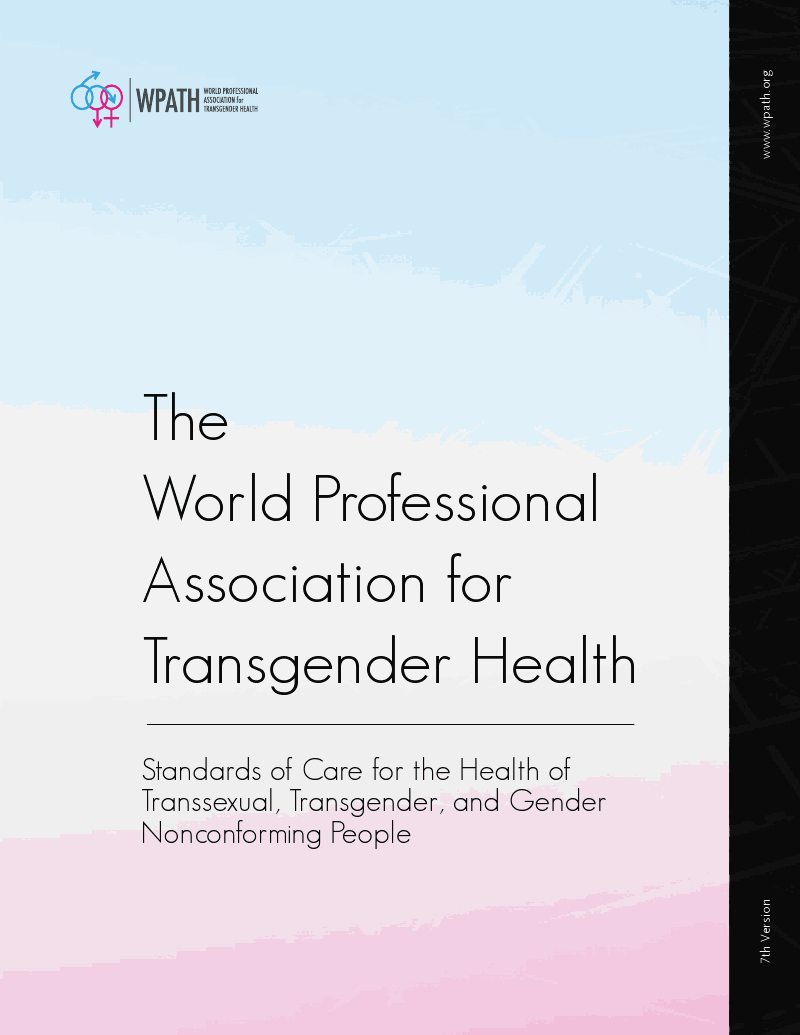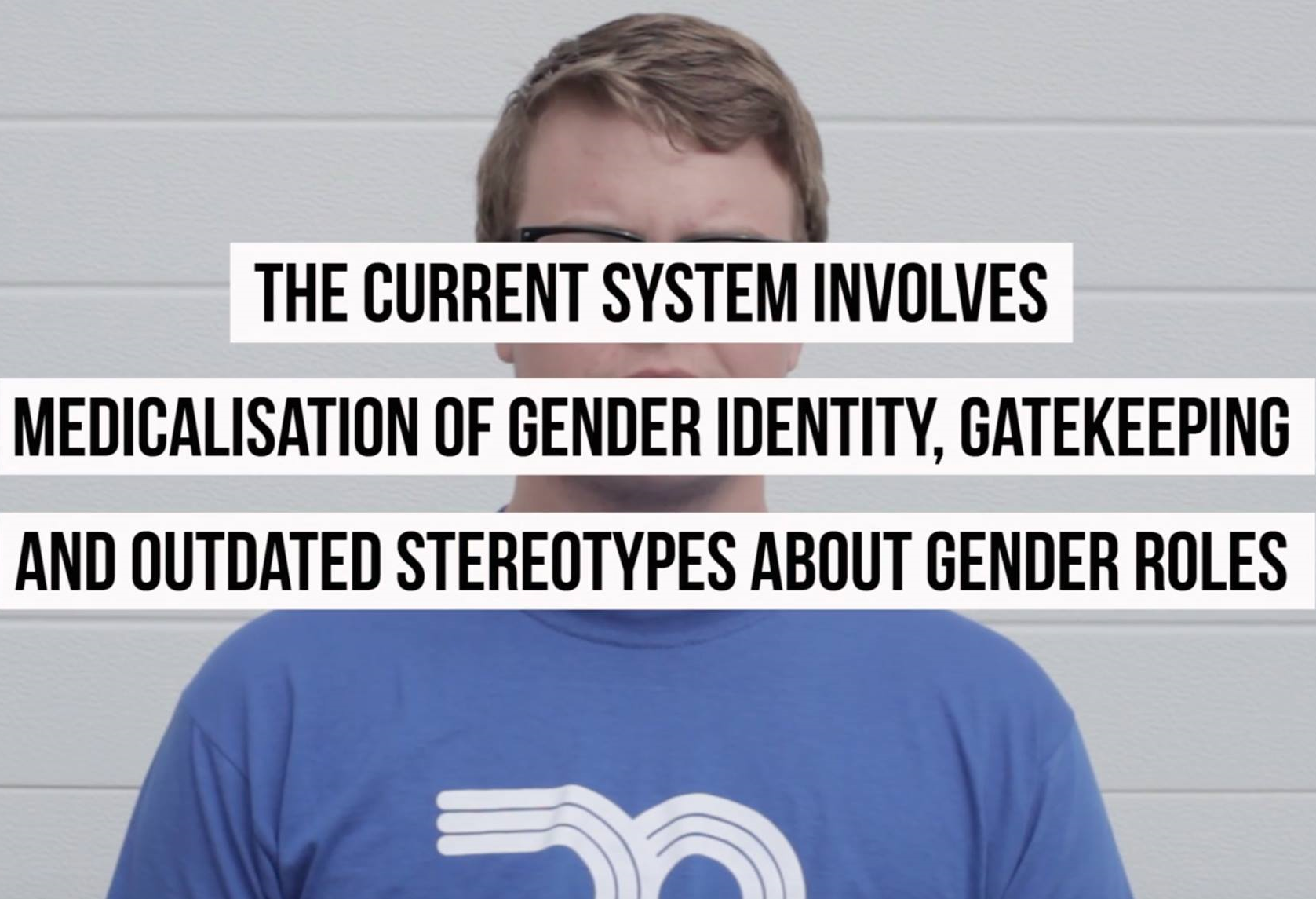Iceland has a long way to go when it comes down to framing the health care service in a way that is fair, humane and up to date with the newest and best regulations about trans related health care. This is the grim conclusion of a new video where trans people describe their experience of the Icelandic health care system. The video premiered today during a seminar at the University of Iceland
The director of the video, British film-maker Fox Fisher, says that one of the biggest challenge that trans people currently face when comes to the health care system in Iceland, is the pre-judgement the health care system puts upon them.

“The people I interviewed all talk about this very strong requirement to fulfill a certain gender role, heavily based on outdated ideas about men and women, their behavior, clothing, hobbies, interest and general expectations about them,” says Fox. “They say that they need to put on an act, a certain role, and play along just to get the health care services that they need. It’s all very binary and seems like the health care system is very concerned with making sure people fit into a very specific, narrow box.
Because of that, a lot of people who are non binary talk about how inaccessible and excluding the health care system is for them. Health officials aren’t keen on accepting the identity of a non binary person. Instead they’re focused on the person’s presentation, whether they appear feminine or masculine, and treat them based on that. Some non binary people say that they even have to compromise a part of their identities just to please the health care employees. And only after they’ve gotten what they want, do they finally have the freedom to be themselves.
What trans people are saying is that they are being forced by health care officials to jump through hoops and do circus tricks for them, so they can access the health care services they need. In other words, people who have been forced to live their life for a long time as their assigned gender, are thrust into yet another role by the health care system – before they can actually live their lives as who they really are.”
“Trans people … are being forced by health care officials to jump through hoops and do circus tricks for them, so they can access the health care services they need.”
Another major challenge trans people are facing in regards to the Icelandic health care system, is the stigma associated with being diagnosed as mentally ill. “You see in Iceland trans people still need to be diagnosed with a mental disorder to be able to get health care, and they put up with it even though that’s not the case, even though they’re perfectly sane, just so they can get the health care they really need,” Fox explains. “And by mental disorder I’m referring to the outdated definition “gender identity disorder”, which health care officials in Iceland are using as a diagnosis for trans people, instead of the most recent and up to date diagnosis “gender dysphoria”.

The difference between the two, is that “gender identity disorder” basically says trans people have a mental disease and that’s why they are trans. Treatment is therefore considered a cure of a mental disease according to that definition.
While “gender dysphoria” is the depression, anxiety or deep sense of not fitting with your assigned gender and the complications that can occur if you are not allowed to live in accordance with your own gender identity. Which puts the emphasis on that trans people require health care in order to improve their well-being.
Countries using “gender dysphoria” are following the newest and most established regulations about trans health care, published by WPATH, World Organisation for Transgender Health. The regulations, which are guidelines for health care professionals based on extensive research about trans related health care, state that a diagnosis of “gender identity disorder” should not be a requirement for treatment, and that trans people should have the right to self-identification.
So by still using “gender identity disorder”and therefore classifying trans people as mentally ill, the health care system in Iceland is not in tune with the newest and most established regulations about trans health care. The national health services in Iceland are still based around these outdated definitions, even though they are used at the cost of people’s happiness, while many other countries are using the most updated definition, “gender dysphoria”. Like in the UK, for example.”
In fact Fox has examined the British health care system as well through the eyes of trans people. Asked if there’s a difference between that and how trans people experience the health care system in Iceland, Fox says it is in many ways different as the health care system and sector in general is very different.
“In the UK we have clinics that specialize more in trans issues. I guess that’s due to the size difference; there are a lot more trans people in the UK than in Iceland so surgeons and officials in the UK probably gain experience faster than in Iceland where they have fewer trans people going through the system.

What the health care system in Britain and in Iceland do have in common, is that both cover some of the costs for hormones and genitals surgeries, but other surgeries such as breast augmentation and FSS surgeries are seen as entirely cosmetic and not covered as a part of treatment. And both have a long way to go when it comes down to awareness and being equipped to take care of trans people in general. Especially, when it comes to non binary people, who are not being included or supported.
So both systems could be improved and they could definitely learn from each other and from other countries as well, since there has been a lot of change in policies within Europe and beyond. Like in Denmark, where the health care system doesn’t use any kind of diagnosis for trans people.”
On an international level, where would you say the Icelandic health care system stands when it comes to the issues of trans people?
“Iceland was at the forefront only a few years ago, but has quickly fallen behind in comparison to other countries that have laws and policies in place; countries like Malta where trans people don’t need any kind of diagnosis to get the health care they need – they just get it, and there’s are no conditions to that. So Iceland falling behind has in part to do with the Icelandic health care system; the before mentioned facts that trans people in Iceland still need to be diagnosed with a mental disorder to be able to get health care and fulfill outdated requirements to get access to health care. Which is not only outdated but not in accordance to human rights views on trans rights and trans related health care.
“… trans people in Iceland still need to be diagnosed with a mental disorder to be able to get health care and fulfill outdated requirements to get access to health care.”
So even though trans people in Iceland have gained a lot of social acceptance – thanks to amazing activists who work tirelessly in Iceland – and even though they are fortunate to have access to any health care services at all, since it’s not the case in most parts of the world, Iceland still has a long way to go when it comes down to framing the health care service in a way that is fair, humane and up to date with the newest and best regulations about trans related health care. The health care system in Iceland definitely needs improvement.”


